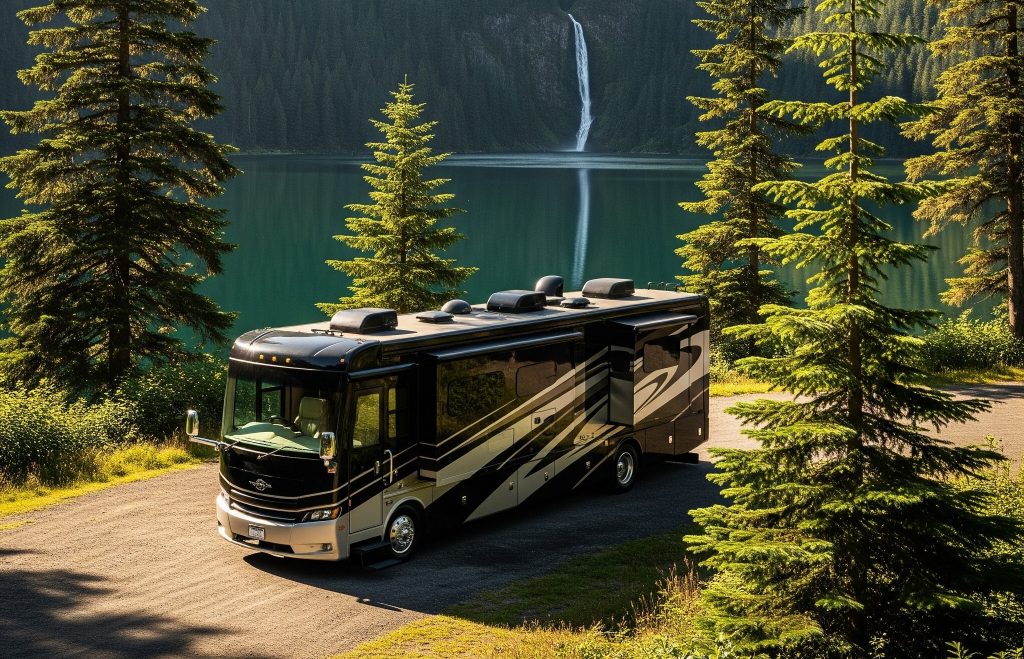As the weather warms and travel season begins, now is the perfect time to not only prepare your RV for the road—but also take a serious look at the tax benefits you might be missing.
Whether you use your recreational vehicle for cross-country travel, a mobile office, or even as a second home, the IRS offers several legal deductions that could translate into real savings—if you know how to navigate them correctly.
At Ride Legal, we work with clients who see their RVs not just as vehicles—but as valuable assets. If you own or plan to purchase a high-end or luxury RV, there are strategic tax advantages you should be aware of in 2025.
Tax Benefits for RV Owners: What’s on the Table?
RV-related tax deductions can apply to the purchase, use, and maintenance of your vehicle—especially if it’s used for business, part-time residence, or dual purpose.
Let’s break down the most important categories.
1. RV Purchase Deductions (As a Second Home)
If your RV includes sleeping, cooking, and toilet facilities, the IRS may recognize it as a second home, which opens the door to:
-
Mortgage interest deductions (on loans secured by your RV)
-
Potential property tax deductions, depending on your jurisdiction
This is a major advantage for RV owners who finance their purchase—especially on higher-value rigs. These deductions mirror those for traditional homes and can reduce your taxable income significantly.
Important: You can only deduct mortgage interest for one primary and one secondary residence per household.
2. Business Use Deductions (Including Mobile Offices)
Using your RV for business purposes? You may be eligible for a wide range of IRS-recognized deductions, including:
-
Fuel, repairs, and maintenance (proportional to business use)
-
Depreciation over time
-
Loan interest (business-related portion)
-
Insurance premiums
-
Business travel expenses (lodging, meals, tolls, etc.)
If your RV serves as a mobile office or is used for client meetings, trade shows, remote consulting, or operational travel, your expenses could qualify.
Example: If your RV is used for business 70% of the time, you may deduct 70% of related expenses.
3. Depreciation of Your RV Over Time
For business use, you may also claim depreciation—gradually deducting the RV’s value over several years.
The IRS allows this via Form 4562, which calculates depreciation for vehicles used in business. This can be a substantial savings opportunity, especially for higher-cost RVs.
We strongly recommend working with a tax advisor to calculate:
-
The correct business-use percentage
-
The most beneficial depreciation schedule (straight line or accelerated)
4. Travel Expenses for Business Use
If you’re traveling for business in your RV, you can deduct qualified expenses such as:
-
Fuel
-
Lodging (when applicable)
-
Meals (usually at 50% of the actual cost)
-
Campsite fees (business-related)
-
Parking or tolls
Note: Personal travel is not deductible. However, business and personal trips can be split, with expenses prorated accordingly.
5. Routine Maintenance and Repair Costs
For business-use vehicles, even routine maintenance can be deductible:
-
Oil changes
-
Tire replacements
-
Roof resealing
-
Generator maintenance
-
Interior improvements for business use
Track all service records and keep detailed receipts. The IRS will require clear documentation if deductions are ever audited.
6. Sales Tax Deductions
If you paid sales tax on your RV purchase (and itemize deductions), the IRS allows you to deduct either state income tax or state sales tax—whichever provides the greater benefit.
However, if you legally registered your RV through a Montana LLC with Ride Legal and avoided sales tax altogether, you may already be enjoying this benefit upfront.
7. Energy-Efficient Upgrades and Incentives
Certain energy-efficient improvements, such as solar panels or modern insulation upgrades, may qualify for:
-
Federal energy tax credits
-
State-level green incentives
-
Utility company rebates
Always consult with a tax expert about eligibility and ensure you retain installation invoices and equipment documentation.
Best Practices: How to Maximize Your RV Tax Savings
Even experienced RV owners miss out on deductions due to poor recordkeeping or lack of planning. Here’s how to do it right:
Keep Separate Logs for Business and Personal Use
Use a mileage tracker like MileIQ, Everlance, or Stride to log:
-
Total miles driven
-
Business-purpose trips
-
Personal mileage (for accurate deductions)
The IRS requires precise logs—not estimates—for mileage deductions.
Organize Receipts Year-Round
Don’t wait until tax season. Maintain:
-
Fuel receipts
-
Repair invoices
-
Maintenance logs
-
Utility bills
-
Loan interest statements
Digital tools like QuickBooks or Notion can simplify this process.
Work with a Tax Professional
Especially for higher-end RVs, we strongly recommend involving a licensed CPA or tax strategist. They can:
-
Help determine business-use percentages
-
Maximize legal deductions
-
Prepare documentation in case of audit
-
Identify state-specific incentives that may apply to your residence
Common Mistakes RV Owners Should Avoid
-
Overstating business use without documentation
-
Claiming personal expenses as business deductions
-
Forgetting to depreciate the RV when eligible
-
Ignoring state-level benefits or requirements
-
Failing to register properly (especially across state lines)
Bonus: How Ride Legal Can Support RV Owners
At Ride Legal, we don’t just help you register your RV in Montana—we help you maximize the financial advantages of ownership.
If you:
-
Are you considering a luxury RV purchase this year
-
Want to avoid paying sales tax through a compliant Montana LLC
-
Plan to use your RV for business or dual-use
-
Need guidance on paperwork, registration, and compliance
We’re here to handle it all. Our concierge team will guide you through the legal structuring, vehicle registration, and ongoing support you need to protect your investment and travel with confidence.
Ready to Make Your RV Work Smarter?
Schedule a consultation with Ride Legal today or use our Service Finder to begin the process of tax-optimized registration and compliance.
We’ll help you get on the road—and keep more money in your pocket for every mile you drive.



